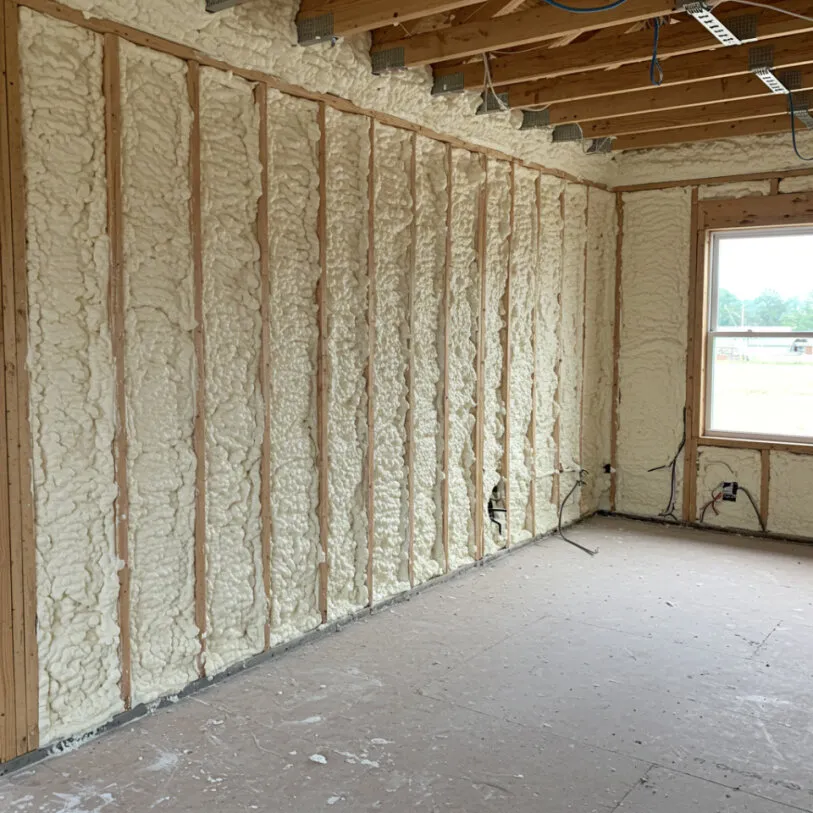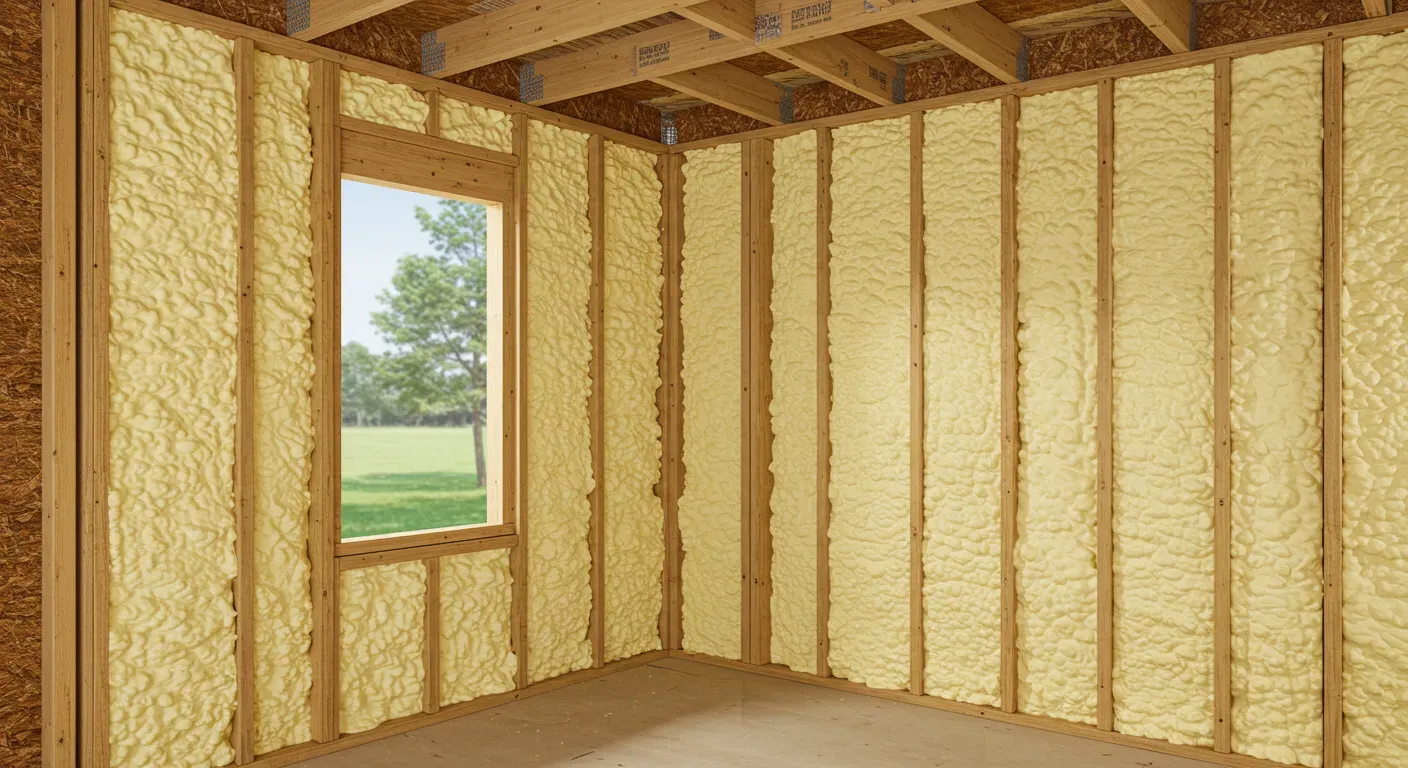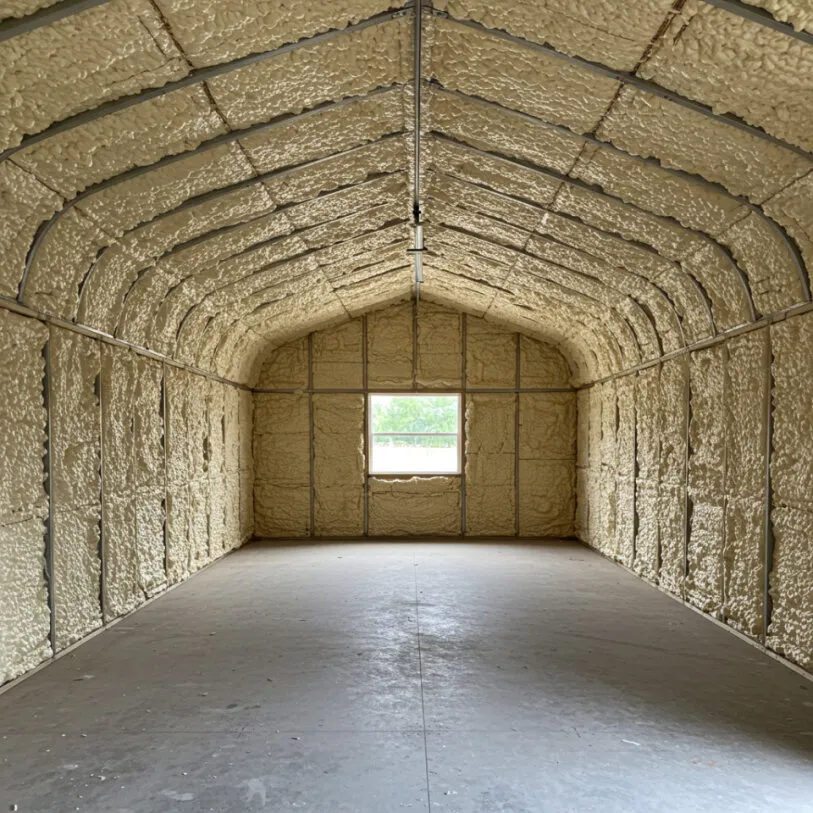
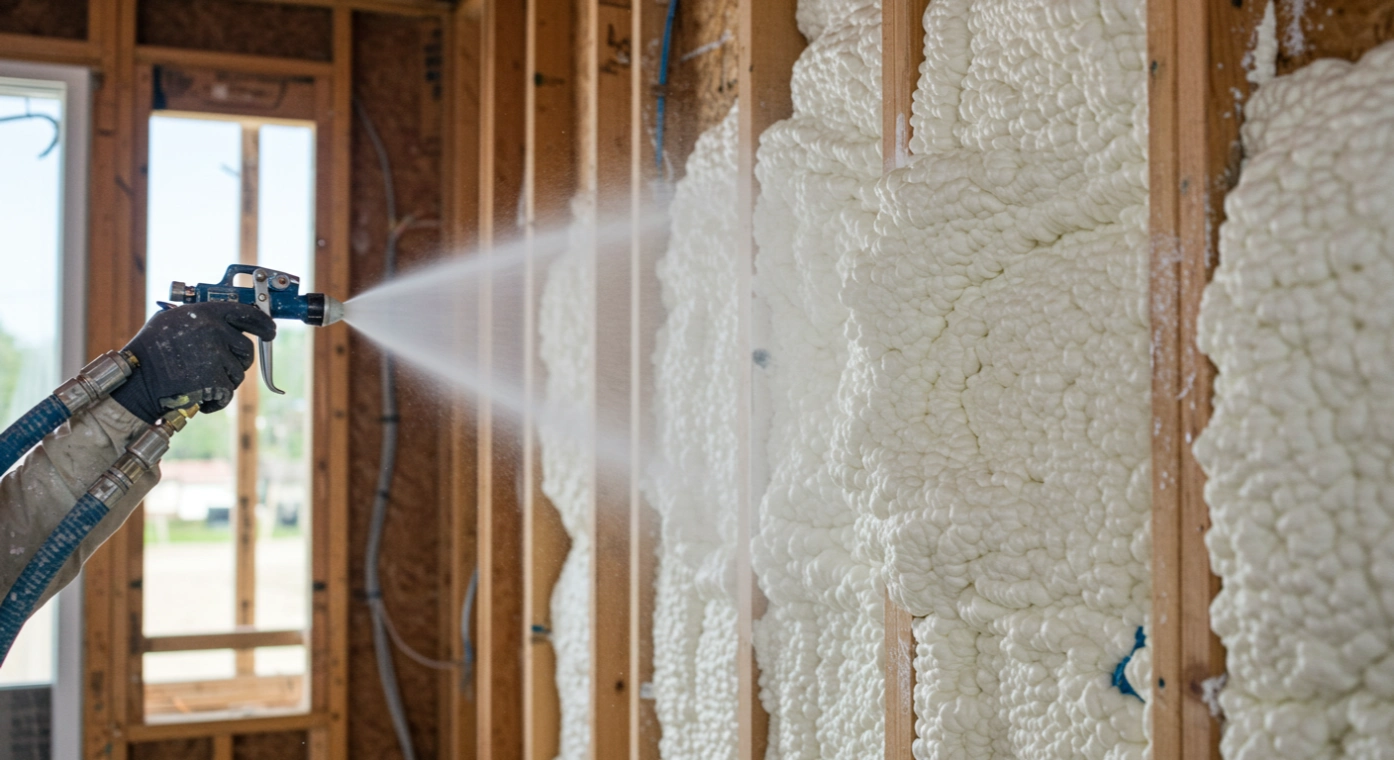
Spray foam insulation significantly increases home value by improving energy efficiency, reducing utility costs, and enhancing overall comfort. Properties with spray foam insulation typically see a return on investment of 70-80% at resale, with energy savings of 20-40% on heating and cooling bills. The long-term durability and air-sealing properties make it particularly attractive to buyers seeking energy-efficient homes.
Real estate professionals consistently report that homes with quality insulation upgrades, particularly spray foam, command higher prices and sell faster than comparable properties. This comprehensive guide examines the specific ways spray foam insulation contributes to home value and what homeowners should consider when evaluating this investment.
Drawing from extensive installation experience across residential and commercial properties, this analysis provides practical insights into maximizing your insulation investment’s impact on home value.
Spray foam insulation creates an effective thermal barrier that dramatically reduces energy consumption. Unlike traditional insulation materials, spray foam expands to fill gaps and cracks, creating an airtight seal that prevents conditioned air from escaping.
The superior R-value performance translates directly into lower utility bills. Homeowners typically experience immediate reductions in heating and cooling costs, with some properties achieving energy savings exceeding 30% annually.
Bonus Tip: Document your energy bills before and after installation to demonstrate concrete savings to potential buyers.
| Insulation Type | R-Value per Inch | Air Sealing | Moisture Resistance | Longevity |
|---|---|---|---|---|
| Closed-Cell Spray Foam | 6.0-7.0 | Excellent | Superior | 50+ years |
| Open-Cell Spray Foam | 3.5-4.0 | Very Good | Good | 50+ years |
| Fiberglass Batts | 2.2-4.3 | Poor | Poor | 15-25 years |
| Cellulose | 3.1-3.8 | Fair | Fair | 20-30 years |
Today’s homebuyers increasingly prioritize energy efficiency when making purchasing decisions. According to the National Association of Realtors, 71% of buyers consider energy efficiency important or very important in their home search process.
Spray foam insulation addresses multiple buyer concerns simultaneously: comfort, energy costs, and environmental impact. Properties with documented energy performance often generate multiple offers and sell above asking price in competitive markets.
Professional appraisers recognize spray foam insulation as a significant home improvement that positively impacts property valuation. The improvement is particularly valuable in regions with extreme temperature variations where heating and cooling costs represent substantial household expenses.
Market data from recent home sales indicates that energy-efficient upgrades, including spray foam insulation, contribute to higher per-square-foot valuations compared to similar properties without these improvements.
Bonus Tip: Maintain installation documentation and energy audit reports to provide appraisers with concrete evidence of the improvement’s value.
| Investment Factor | Traditional Insulation | Spray Foam Insulation |
|---|---|---|
| Initial Cost | Lower | Higher |
| Energy Savings (Annual) | 10-15% | 20-40% |
| Maintenance Requirements | Regular replacement | Minimal |
| Resale Value Impact | Moderate | Significant |
| ROI at Resale | 50-60% | 70-80% |
The higher upfront investment in spray foam insulation typically pays dividends through reduced operating costs and increased resale value. Properties with spray foam often maintain their energy efficiency advantages throughout their ownership period without requiring insulation replacement.
Spray foam insulation eliminates hot and cold spots throughout the home by creating uniform thermal protection. This consistency enhances living comfort and reduces strain on HVAC systems, extending equipment life and reducing replacement costs.
The air-sealing properties also prevent drafts and outdoor allergens from entering living spaces, improving indoor air quality and reducing respiratory irritation for occupants.
Closed-cell spray foam acts as both insulation and vapor barrier, preventing moisture infiltration that can lead to mold growth and structural damage. This dual function protects the home’s integrity while maintaining healthy indoor environments.
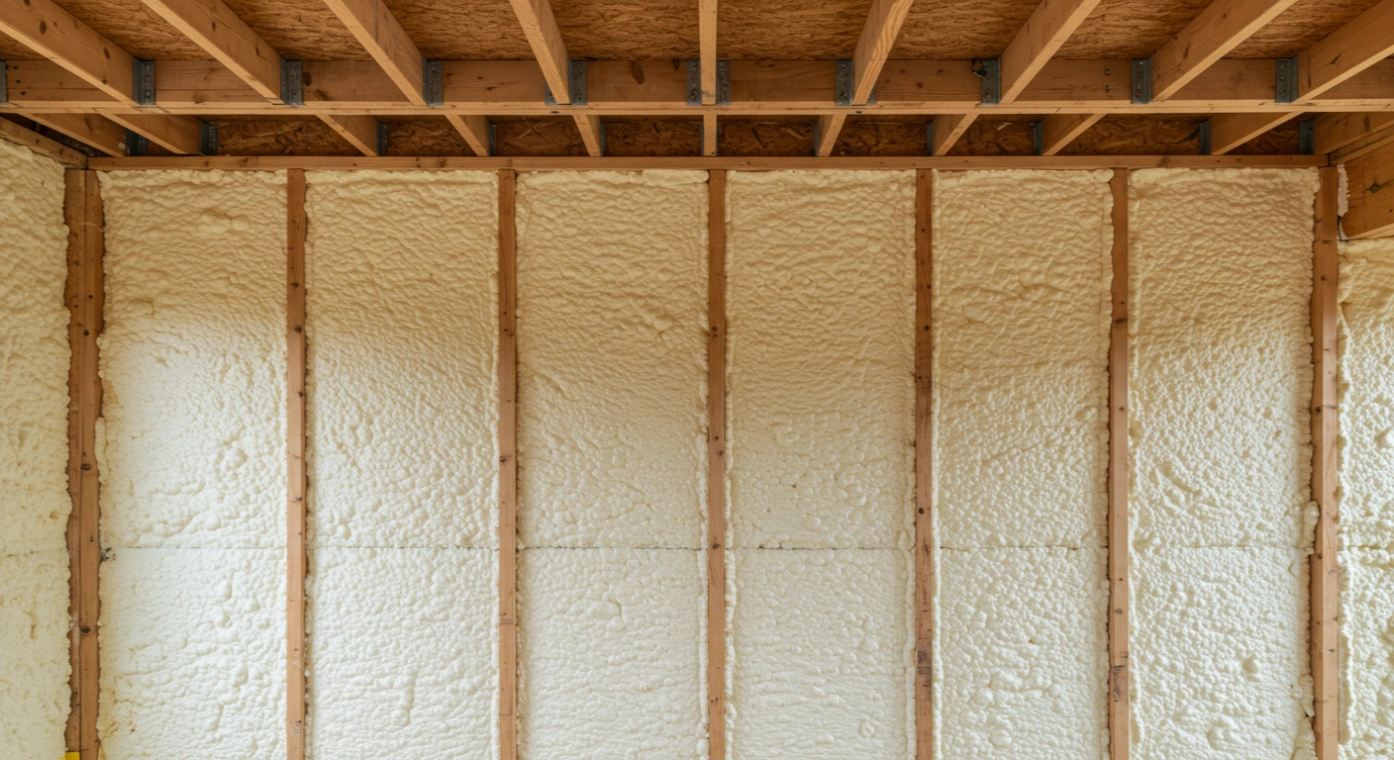
Professional installation is crucial for maximizing spray foam’s value-adding potential. Improper application can reduce effectiveness and potentially create issues that detract from home value rather than enhancing it.
Verify installer credentials, insurance coverage, and local licensing requirements before proceeding. Quality installation ensures optimal performance and protects your investment’s long-term value.
Different climates benefit from different spray foam applications. Northern climates with severe winters typically see greater value from closed-cell applications, while moderate climates may achieve excellent results with open-cell foam at lower costs.
Local building codes and energy efficiency incentives also influence the value proposition. Research available rebates and tax credits that can improve your return on investment.
Bonus Tip: Schedule installations during moderate weather conditions for optimal foam curing and performance.
Older homes often see the greatest value increase from spray foam upgrades because they typically have the most significant energy efficiency gaps. Newer constructions may show smaller percentage improvements but still benefit from enhanced comfort and resale appeal.
Cascadia Spray Foam of Seattle delivers comprehensive insulation solutions designed to maximize your home’s value and efficiency:
Spray foam insulation represents a substantial investment in your home’s long-term value and efficiency. The combination of immediate energy savings, enhanced comfort, and increased resale appeal makes it particularly attractive for homeowners planning to stay in their properties for several years or more.
Success depends largely on professional installation quality and selecting the appropriate foam type for your specific climate and home construction. Properties that demonstrate documented energy performance improvements consistently outperform comparable homes in resale situations.
Evaluate your current energy costs, home comfort issues, and long-term ownership plans when considering this upgrade. The investment typically provides the greatest value for homes with existing energy efficiency challenges or those in regions with significant heating and cooling demands.
Transform your home’s energy performance and value with professional spray foam insulation. Expert assessment and quality installation ensure maximum return on your investment while improving daily comfort and reducing operating costs.
Contact Cascadia Spray Foam of Seattle at (425) 386-3500 or [email protected] to discuss your specific needs and receive a comprehensive evaluation of how spray foam insulation can enhance your property’s value and efficiency.
Most homeowners notice reduced utility bills within the first full billing cycle after installation. The most dramatic savings typically occur during peak heating and cooling seasons when the insulation works hardest to maintain comfortable temperatures.
Many insurance providers recognize spray foam’s protective benefits and offer premium discounts for homes with quality insulation upgrades. Contact your insurance agent to discuss potential savings opportunities.
Keep installation contracts, material specifications, before-and-after energy bills, and any energy audit reports. This documentation helps demonstrate the improvement’s value to potential buyers and appraisers.
Spray foam typically provides the highest return on investment among insulation options due to its superior performance characteristics and longevity. While initial costs are higher, the combination of energy savings and resale value often exceeds other insulation types.

